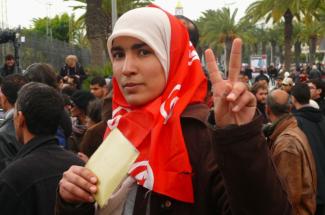Arab countries
Tunisia’s history of intellectual excellence

Seven years ago, a popular uprising toppled Tunisia’s despotic President Zine El Abidine Ben Ali. Protests fast spread throughout the Arab world, and soon strongmen lost power in Egypt, Libya and Yemen too. Syria’s devastating civil war began. Apart from Tunisia, however, all other countries affected by the Arab spring are today run by the ancien régime or have become failed states.
Observers now discuss whether Tunisia is a beacon of hope in a troubled region, or whether it is a special case that cannot serve as a model. Safwan M. Masri of Columbia University belongs to the second group. His recently published book “Tunisia – an Arab anomaly” spells out the many ways in which Tunisia differs from other Arab countries. Masri assesses the historical reasons of Tunisians’ distinct sense of nationhood and their vibrant civil society:
- Tunisia has known organised statehood for millennia, going back to Carthage, which was Rome’s competitor more than two millennia ago. It later became an important Roman province, and its current borders are basically those of that province. Tunisia was always a hub of pan-Mediterranean traffic. Thanks to trade, urban centres and considerable infrastructure, tribal affiliations did not matter as much as they do in most North African and Middle Eastern regions.
- After the Arab conquest in the late seventh century, the town of Kairouan became an important centre of Muslim scholarship. Tunisia had intellectual centres of excellence and fostered its own version of Sunni Islam, which fit in with pre-existing cultures. Tunisia was too far away from the centres of Muslim empires to be influenced by them much, but always stayed in touch with the Mediterranean’s European shores.
- In the 19th century, Tunisian intellectuals took an interest in modernisation. They started new educational institutions, some of which were not linked to the faith. Secular and religious institutions were engaged in exchange discourse. Tunisia ended slavery before the USA did, and intellectual leaders promoted women’s rights early on.
- Habib Bourguiba, Tunisia’s autocratic independence leader, built on Tunisia’s specific history. He resisted pan-Arabism, which basically blamed all problems on the imperial powers, but did little to develop societies. Bourguiba invested massively in the bilingual education system, which relied on Arabic and French, emphasising science and humanities. Religion did not get a leading role. Moreover, the trade unions were given scope for independent deliberation, and family law was modernised in a way supportive of gender equality. Bourguiba did not want the armed forces to become a centre of power, so he did not spend much on the military.
Masri does an excellent job of showing that the success of Tunisia’s Jasmine revolution has deep roots. Age-old traditions of indigenous intellectual excellence were reinforced after independence by a regime that, even though it was despotic, was developmental in the sense of promoting progress especially in the field of education.
Tunisia’s democracy is still young. Long-term success is certainly possible, but by no means guaranteed. Masri finds it promising that Tunisia’s major political forces have joined in a coalition government, and that the Islamist Ennahda party has changed its stance and now calls itself party of Muslim democrats.
Masri acknowledges that Tunisia has been hit by terror attacks and that religious fundamentalists are eager to see its democracy fail. Their aggressive stance proves Masri wrong in an important respect. Apparently, the extremists do see Tunisia as potential model – and that makes sense if one considers how fast the Arab spring spread throughout the Arab region. Quite obviously, what happened in Tunisia resonated elsewhere.
In developmental terms, nations can learn from one another even if their histories and social settings are not identical. Because of its specifics, Tunisia cannot serve as a blueprint, but it can certainly inspire hope in other Arab countries where people relate to what is happening in this special part of their region.
Reference
Masri, Safwan M., 2017: Tunisia – An Arab anomaly. New York: Columbia University Press.








